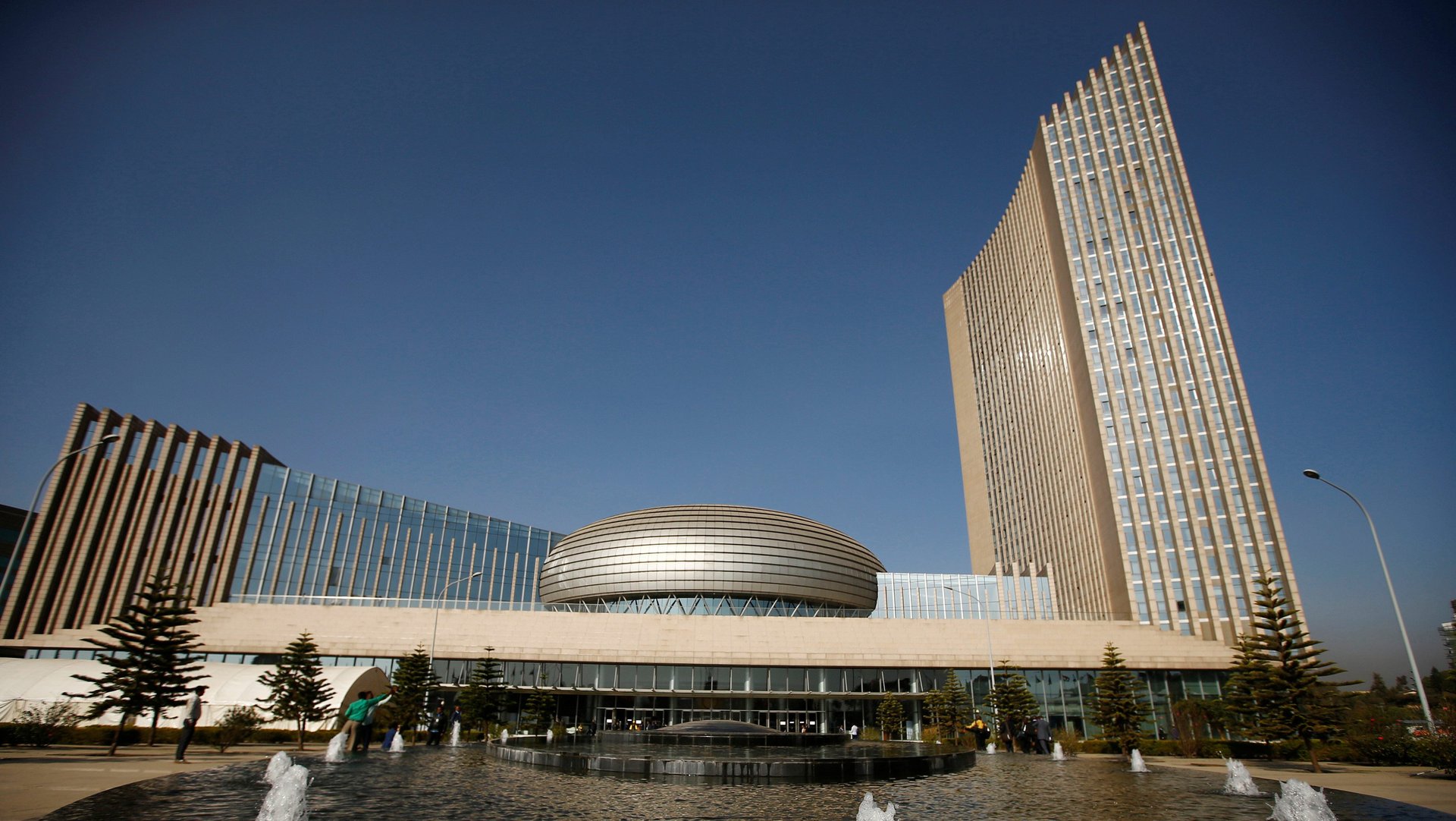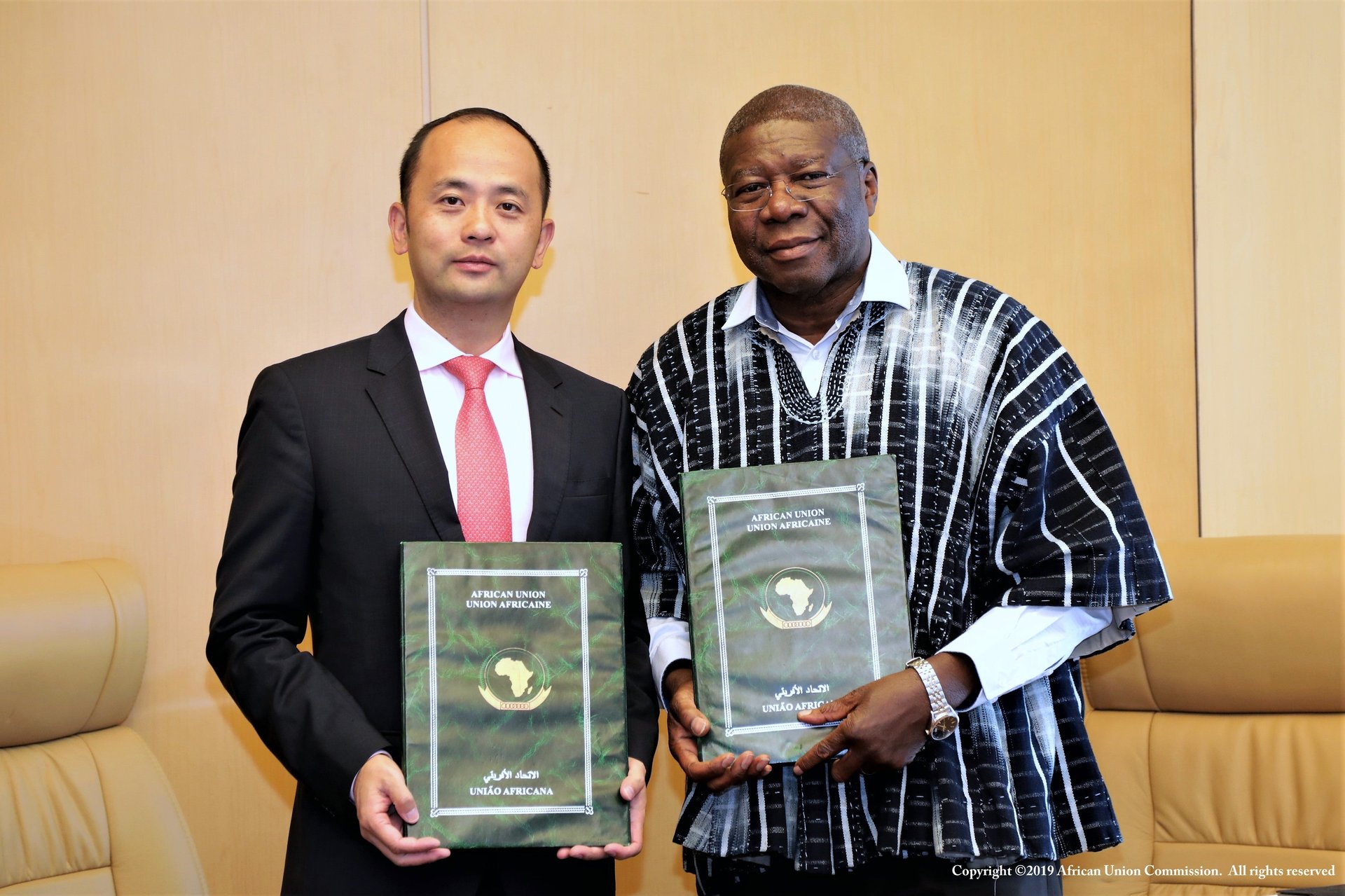The African Union is doubling down on deepening its relationship with Huawei
Huawei is currently fighting a ban in the US aimed at curtailing purchases on its equipment and limiting its global reach. But that’s not the case in Africa, where the company has rapidly expanded since starting operations here over two decades ago.


Huawei is currently fighting a ban in the US aimed at curtailing purchases on its equipment and limiting its global reach. But that’s not the case in Africa, where the company has rapidly expanded since starting operations here over two decades ago.
The Chinese telecommunications giant today announced a three-year memorandum of understanding to improve the technical expertise of the African Union and to cooperate on key issues related to information and communication technologies.
As part of the agreement, Huawei will partner with the continental body to strengthen sectors including internet of things, cloud computing, broadband, rolling out 5G networks, and artificial intelligence. The initiative will also train young people in tech skills, and offer AU departments support in dealing with cybersecurity, as well as digital health and education.
The deal follows a 2015 MOU which focused on improving the union’s technological capabilities, including by organizing annual tours to Huawei’s training centers in China.
The timing of the agreement is crucial and strategic for the Shenzhen-headquartered company, which currently finds itself in the crosshairs of Washington DC. United States president Donald Trump has accused the company of stealing trade secrets and violating US sanctions against Iran and has barred American firms from dealing or selling equipment to Huawei.

The clash is part of a bigger gambit set by Trump against China over trade amid Beijing’s growing industrial, economic, and technological foothold. Trump has threatened to introduce more tariffs over the slow pace of the negotiations, while Beijing has warned of cutting exports of rare earths used in everything from smartphones to military hardware.
Huawei’s deal with the AU could also be seen in the context of trying to improve its competitive advantage in the continent. The company is already one of the biggest phone brands operating in Africa, coming just behind China’s Transsion and South Korea’s Samsung in the smartphone space. Since starting its operations in Kenya in 1998, it has used a blend of pricing, customer service, brand awareness, and a vision to bridge the digital divide to penetrate the African market.
Huawei has also reportedly built about 70% of Africa’s 4G networks, vastly outpacing competitors in the demand not just for internet but for improved and faster connectivity.
The firm also installed much of the communications infrastructure at the China-built African Union headquarters in Addis Ababa. After allegations surfaced last year that the AU’s confidential data was being copied and sent to servers in Shanghai through a backdoor, Huawei denied them. It also said it didn’t provide the equipment used for the AU’s intranet or extranet.
Yet given Huawei’s improbable rise, the current trade ban could really undermine its future operations in Africa. This is especially true if Google cut its phones from accessing Android after the Aug. 19 grace period—potentially denying users not just popular applications like Gmail and Google Maps but essentially the world’s most widely used operating system. The telecoms supplier has said it has built its own OS as a backup option.
The trade ban on Huawei could also accelerate the internet’s division into what former Google CEO Eric Schmidt called Chinese-led and US-led internets. This could put African nations in a bind, forcing them to choose between European and American telecommunications providers and Chinese tech giants, the latter of whom are significantly subsidizing Africa’s telecom and internet infrastructure.
However, for now, the African Union isn’t remaining non-aligned in the push to improve Africa’s digital communications networks.
“Under this agreement, we are pleased to consolidate our existing partnership with Huawei, a leading group in the fields of innovation and technological research,” Thomas Kwesi Quartey, the deputy chairperson of the AU said. “It is essential that we work closely with our partners to meet the digital transformation challenges of Africa.”
Sign up to the Quartz Africa Weekly Brief here for news and analysis on African business, tech and innovation in your inbox